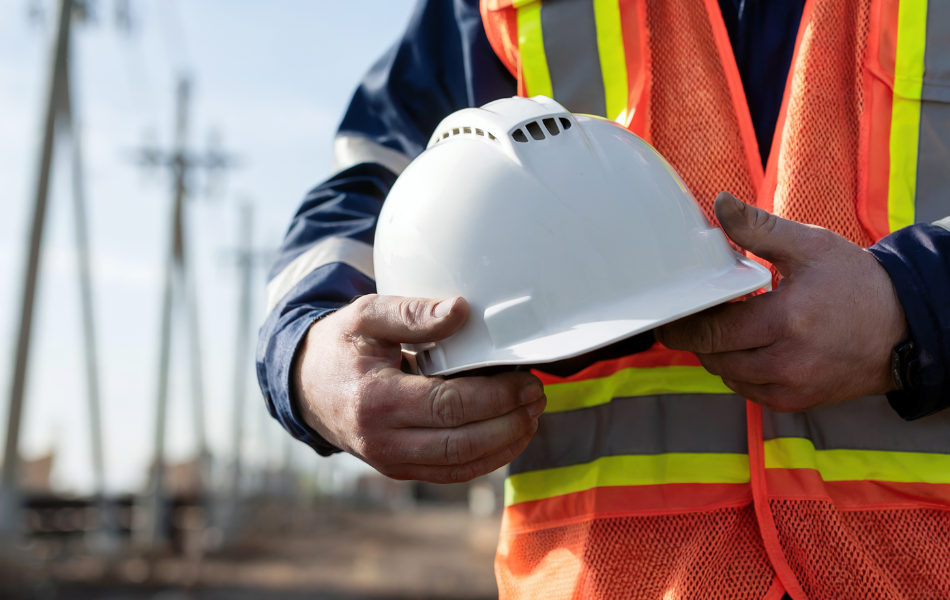Heat Network Regulations: November 2024
Heat Network Regulations – 2 Consultations Launched. You need to respond – your views are important.

On 7 November, the Department of Energy Security and Net Zero (DESNZ) and Ofgem published a joint consultation on Consumer protection. It covers consumer protection measures, including authorisation conditions and measures to mitigate and manage the risks of heat network failure. They would particularly like to get input from heat network operators, such as social landlords (have a lot of heat networks), suppliers, developers, domestic and non-domestic, as well as small and medium business customers of heat networks.
Ofgem have also published a consultation on authorisation and regulatory oversight which focuses on the regulatory activities and processes which will underpin the new regulatory framework. This includes Ofgem’s proposals for authorisation and registration arrangements as well as regulatory oversight, including monitoring, compliance, and enforcement of heat networks. It is particularly relevant to heat network operators and suppliers, metering and billing agents, energy services companies, housing providers, asset owners, consumer groups and trade bodies.
Responses to both consultations need to be submitted by Friday 31 January.
Q. What are some of the key issues?
A. Consumer Protections:
- Segmentation – large, small, and not-for-profit (NFP) heat networks. Do they demonstrate regulatory proportionality and fair consumer outcomes?
- Standards of Conduct will align with gas & electricity but will additionally include “improving consumer engagement.”
- Quality of Standards – important for social landlords to provide their comments on performance standards for NFP schemes (there will also be a separate consultation).
- Complaint handling – aligning with gas & electricity, but dovetailing with Housing requirements, etc. NOTE – the Housing Ombudsman has highlighted that social landlords are not handling complaints well, maladministration is rising. Separate reporting to Ofgem will be expected. How will this fit with reports to RSH? Requirement for record keeping – what impact and costs for social landlords?
- Vulnerability – definitions and consider implications for what more social landlords will need to do to comply and how this relates to what the RSH already require?
- Extending protections to non-domestic customers.
- Pricing & transparency to be fair and ‘not disproportionate’ (there will also be a separate consultation).
- Transparency of information – billing, accuracy, frequency, service charges (can they be unbundled? Consultation expects this.). New information for customers will be required to explain the new regulations and their rights. Are timescales realistic?
- Step in – ‘risk based proportionate financial reporting regime – continuity plans and contractual arrangements for ‘adequate safety net measures’ in last resort of failure.
- Impact assessment – are the costs included realistic? If not, provide realistic costs. Has it included the one-off setup costs? If not, provide realistic cost estimates for what will be required to comply with the new regulations.
Authorisation and regulatory oversight:
- Definitions of supplier / operator.
- How Ofgem will regulate against the rules in the case of district and communal heating.
- Monitoring, audit, compliance, and enforcement.
- Key questions are whether ‘the drafting meets the regulatory intent’?
Heat networks will be deemed to be authorised from the outset in April 2025, and will be given until early 2027 to complete registration through Ofgem’s digital service.
Q. When will the Regs come into operation?
A. The Government has said that legislation will be laid in Parliament in 2025 and will set out the commencement dates, with the first being the Consumer Advocacy and Advice functions in April 2025. These will be provided by Citizen’s Advice in England & Wales and Consumer Scotland in Scotland. The Consumer Redress scheme run by the Energy Ombudsman. Ofgem’s role as regulator will begin in January 2026, alongside rules to protect consumers. The transition will continue in 2027, when more protections will come into force.
During 2025 there are likely to be additional consultations related to the market framework and consumer protection. These will be used to inform the Government's work on heat network technical standards, authorisation, and step in conditions.
Q. What should social landlords do?
A. Respond to the consultations and provide clear evidence on what is practical, what the costs (and other challenges) are for implementing these new regulations. It is important to highlight any proposals, such as consumer protection or complaint handling that are already covered by existing regulations in social housing.
As well as studying the consultation documents and impact assessments, social landlords should register for Ofgem’s and DESNZ’s consultation webinars to help them understand what is required. There are two webinar – September & October – recordings available as useful background before the webinar on 3rd December (must register in advance).
Q. What help is available?
A. DESNZ publishes regular updates on its Heat Networks Programme and social landlords can register for these updates by following instructions on the latest update.
Ofgem also publishes details of webinars and social landlords can register to receive their heat network updates by emailing: heatnetworksregulation@ofgem.gov.uk.
Q. What other resources are available?
A. The Heat Network is a forum to discuss and share good practice about district and communal heating within social housing. It brings together its own communal heat experiences, shares lessons and some short guidance documents to help colleagues across the sector. It also acts as a conduit for social housing input into national heat network policy.
The NHMF is running a dedicated workshop at its Maintenance Conference on the Heat Network Regs and these consultations with presentations by The Heat Network, DESNZ & Ofgem. This will enable social landlords to understand what will be required by these new regulations and will help them finalise their consultation responses. The NHMF promotes best practice in social housing maintenance and is committed to championing innovation to deliver excellence in maintenance and asset management. An organisation automatically becomes a member when it subscribes to the M3NHF Schedule of Rates and selected modules. Its Best Practice website publishes briefings on asset management and repairs and maintenance, including links to all the relevant legislation and guidance.
DESNZ also awards grants of up to £500 towards eligible Heat Network Training courses. These grants are available until April 2025.
The NHMF acknowledges the help and advice it has received on Heat Networks from Rachael Mills, The Heat Network.


